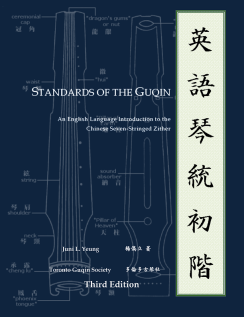
Song Yuren (Centre left, beside the chalkboard), in an open lecture at the Elm Altar.
Song Qingsheng (宋慶勝), or more popularly known by his courtesy address Yuren (豫人), is a prominent speaker of Hanist thought in the Huaxia Restoration Movement. He is self-titled as “Researcher for the purpose of Saving Huaxia culture (华夏文明研救者)”, and a transmitter of the Standards Vessel sect of the Yi School (School of Changes) thought (易家制器派傳人). After his retirement from his post as a CCP local official, he has been actively studying, writing, and lecturing about the possibilities and necessity of a revival of Han Chinese tradition as a cultural backbone to restoring prominence and survival of the Han Chinese race. For the past two years, Song has travelled across China and Malaysia to give lectures in his discourse, as well as in ritual and etiquette of the Han Chinese tradition. In the details of this post is an example of his lectures, usually an hour long, on recategorizing discourse found in China into three major systems divided not by political spectrum, but as cultural groups. He notes as his conclusion that for the past two centuries, China has been continually experimenting with foreign systems of thought with varying degrees of success, but to ensure survival of the race, one must rely on indigenous virtues and discourse to ensure existance of the Chinese legacy in the future.
In this translation, I will attempt to maintain the grammatical structure of the original Chinese language (including the many redundancies found in public speech patterns), so that the reader can follow through with the original lecture (should the video come back up) without too much difficulty. If time permits, I will also translate Lecture 1 (on the morning of Saturday, October 24), which includes more detail on the defining of the three categories and examples in context (as well containing less subjective comments by the speaker), but the central idea remains large the same.
Source from: http://www.hanminzu.com/bbs/viewthread.php?tid=259765&extra=page%3D1&page=5
Source for Lects. 1 & 2: http://www.haanen.com.cn/bbs/dispbbs.asp?boardID=8&ID=74768&page=1
Original Seminar Video (now censored): http://v.blog.sohu.com/u/vw/3737402
Mr. SONG Yuren’s Han Lectures at the Elm Altar Series
Cultural Discourse of Han, Tartar, and Western Systems (Lecture 3, Morning of Sunday October 25, 2009)
Blog:http://songyuren.blog.sohu.com
Venue:Every Saturday and Sunday, under the elm tree in the Zhengzhou City God Temple
Welcome everyone to the Han School Forum. We continue our talks from yesterday, which our primary discussion was on the basic concept of “Han”, “Tartar” and “West” – three major systems of culture. I see that there’s more people today, so I’ll recap. On our great land of the Central plains, for the past century, the division of cultural space has been primarily of these three major sects. What three sects are these three? One is our Han system of culture, another is called Da (Tartar) system of culture, and one is called Xi (Western) system of culture. These three systems might somewhat distant in many people’s minds, or may never have heard of Han-Da-Xi these three categories. That’s because in your mind the most you can see is the division within the Western system of discourse, such as the Republicans (Kuomintang), leftists, rightists etc. These are all within the Western system. Our classification is one that stands on a greater angle, perspective to divide them.
More





Recent Comments